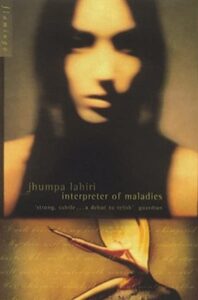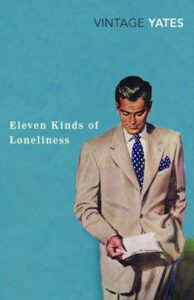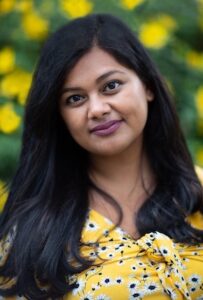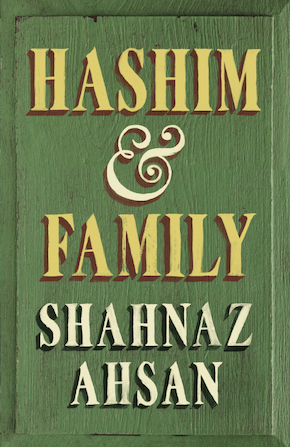Lasting impressions
by Shahnaz AhsanI often panic when I am asked about my ‘favourite’ books, especially since publishing my own debut novel Hashim & Family earlier this year. It is such a personal question – there is so much to be understood about someone from learning about the books that they love – that it can almost feel like a test: will my choices be judged for not being suitably avant garde or sophisticated enough?
But that isn’t what the pleasure of reading is about. Books, like people, come into our lives at different times and end up serving different purposes, teaching us things we did not know before, or revealing something to us about ourselves, our environments, our histories, that helps us better navigate our way through the world. This list of eight books comprises of authors and works that have stayed with me. Their different worlds, themes and characters have accompanied me on my journey as both reader and writer, shaping my own work and approach to reading and creating, and I am grateful for each one.
A Suitable Boy by Vikram Seth
Although it is currently enjoying a revival thanks to the recent, long-anticipated, BBC television adaptation, I read Vikram Seth’s 1993 magnum opus during the summer after my A-levels – it was unlike anything I have ever encountered before or since. At just shy of 1,500 pages A Suitable Boy may appear daunting, but Seth’s gift of storytelling means that the chapters simply melt away as you fall deeper into post-partition India with all its contending issues: politics, religion, social changes – and of course, the question of who would make a suitable marriage partner for 19-year-old Lata. Set between 1951 and 1952, in the run-up to the newly independent nation’s first general election, the novel is part history and part mirror to the future. Reading it sheds some light on the complexities and tensions the country still faces today making A Suitable Boy, arguably, no less than a biography of modern India.
The Tenant of Wildfell Hall by Anne Brontë
Growing up in West Yorkshire only a few miles away from Haworth, the home of the famous Brontë sisters, it is only natural that the works of the literary trio would feature somewhere in my list of influential books. Although Charlotte’s Jane Eyre (1847) and Emily’s Wuthering Heights (1847) rank amongst the most famous works in English literature, in my mind it is Anne’s The Tenant of Wildfell Hall (1848) that deserves the most recognition. Published under the pseudonym Acton Bell, The Tenant of Wildfell Hall was criticised at the time as being ‘coarse’ and ‘brutal’ for its unflinching depiction of a woman leaving her alcoholic husband. But the novel stands as one of the most strident feminist tracts of the period, showing the realities faced by women in abusive marriages, and is a strong defence of women’s social, legal and economic rights that still resonates today.
Lahiri’s precision in description, using the barest prose to create the strongest of impressions, and her ability to cut through to the rawest parts of a person is what unites each of the stories.”
 Interpreter of Maladies by Jhumpa Lahiri
Interpreter of Maladies by Jhumpa Lahiri
This collection of nine short stories took the literary world by storm in 1999, winning the Pulitzer Prize for Fiction and selling over 15 million copies since publication. But to me, Lahiri’s debut has a much more personal resonance: it was the first time I had read stories featuring Bengali characters in English. Lahiri writes about Bengalis of all backgrounds – immigrants to America, West Bengalis from India and Bangladeshis – and of all classes: seasoned academics, young middle-class families, sweepers, drivers, widows and newlyweds. Lahiri’s precision in description, using the barest prose to create the strongest of impressions, and her ability to cut through to the rawest parts of a person is what unites each of the stories. Readers are left with vivid impressions of characters that remain long after the brief glimpses into their lives that the author grants us.
Fried Green Tomatoes at the Whistle Stop Cafe by Fannie Flagg
While many of the books on this list feature because of some kind of personal connection I’ve felt either with the author’s background or the relatability of the subject matter, Fannie Flagg’s Fried Green Tomatoes at the Whistle Stop Café (1987) swept me up into periods and places that I had never encountered in fiction or real life before. Set in and around Birmingham, Alabama, the novel takes the reader on a journey through the Depression-era South and into the 1980s through a cast of warm, memorable characters including Evelyn Couch, a middle-aged, menopausal housewife, and Idgie Threadgoode, a gender non-conforming free-spirit who opens the Whistle Stop Cafe in the midst of the Depression as a beacon of generosity. Flagg never shies away from showing the brutal realities of segregation, racism and poverty, but the humanity at the heart of the book – especially regarding women’s relationships with themselves and others – is what makes this such a favourite of mine.
Delight by J.B. Priestley
Another author from the West Riding makes it onto the list: Bradford-born J.B. Priestley is most well-known for the GCSE-syllabus favourite An Inspector Calls. But this collection of essays published in 1949 is a real treasure. Written in the aftermath of the Second World War, the collection seeks to remind the reader that there are still reasons to be happy, and that simple snippets of delight can be found in everyday life. The short essays range in subject from a new box of matches, or reading in bed about foul weather, to the joy of not going to a party and the pleasures of reading the Sunday papers in the country. It feels as though in 2020 we could all do with a reminder of such simple delights.
Anne of Green Gables by L.M. Montgomery
Every young reader deserves to encounter a book that throws open a whole new world for them: for me that was the 1908 children’s classic Anne of Green Gables. The eccentric Anne Shirley is quirky and strange but is always unapologetically herself, never diminishing her own talents or passions in order to fit in – a timeless example of quiet confidence for any pre-teen. Through the subsequent sequels, I felt as though I grew up with the outspoken, intelligent, imaginative Anne as she completes school, goes away to university, navigates her independence, becomes a teacher, eventually marrying her equal (Gilbert Blythe is one of the few unproblematic male love interests in English literature) and having children of her own. The themes in the later books such as negotiating the balance of career and family, gender equality in education and work, and even loss including stillbirth, feel almost modern in their continued relevance today.
Discovering Yates in my twenties was one of the highlights of my lifelong reading trajectory. An underrated genius.”
 Eleven Kinds of Loneliness by Richard Yates
Eleven Kinds of Loneliness by Richard Yates
In 1950s New York, the rotting promise of American consumerism provides the backdrop to this collection of eleven short stories all centred around the idea of loneliness, first published in 1962. Yates interprets loneliness widely and in unexpected ways. In one story we see the beginnings of a performative and unhappy marriage; in another a Manhattan office worker anticipates being fired from his job. We encounter a WWII veteran who has been hospitalised with TB and whose wife visits him weekly despite having taken a lover, and a schoolboy whose inability to connect with his peers causes him to lash out against his sweet but naïve teacher. What connects each of the stories is Yates’ delicacy of touch – there is an unpretentious crispness to his descriptions and characterisations, and despite the subject matter, he does not revel in the misery of his characters. Loneliness is presented as a fact, but this does not erase his empathy. Discovering Yates in my twenties was one of the highlights of my lifelong reading trajectory. An underrated genius.
Small Island by Andrea Levy
Small Island (2004) is about the Windrush generation – of which Levy’s own parents were a part – and how they came from Jamaica to Britain and built their lives. But it is also the story of modern Britain and how people from different backgrounds lived alongside each other during the 1950s, and the tensions and relationships that grew from that. Levy’s writing is deft and intelligent, weaving together the historical context with her brilliant characterisations, producing a narrative that is deliciously readable and compelling. Andrea Levy declared that she wrote the novels that she had wanted to read as a young woman: she read her first book at the age of 23 and started writing herself in her mid-30s – and like countless other readers, I am so glad that she did.
 Shahnaz Ahsan was born and raised in Keighley, West Yorkshire, and is of Bangladeshi heritage. An award-winning writer of short stories, she holds degrees from the University of Oxford, the University of Bradford and the University of Pennsylvania, where she was a Thouron Award scholar. She has lived in London, Philadelphia and Addis Ababa. Her debut novel Hashim & Family, a story of family ties, migration and connections to home, was longlisted for the Guardian’s Not the Booker Prize, and is published by John Murray in hardback and eBook.
Shahnaz Ahsan was born and raised in Keighley, West Yorkshire, and is of Bangladeshi heritage. An award-winning writer of short stories, she holds degrees from the University of Oxford, the University of Bradford and the University of Pennsylvania, where she was a Thouron Award scholar. She has lived in London, Philadelphia and Addis Ababa. Her debut novel Hashim & Family, a story of family ties, migration and connections to home, was longlisted for the Guardian’s Not the Booker Prize, and is published by John Murray in hardback and eBook.
Read more
shahnazahsan.com
@shahnazahsan
Author portrait © Imogen Forte


